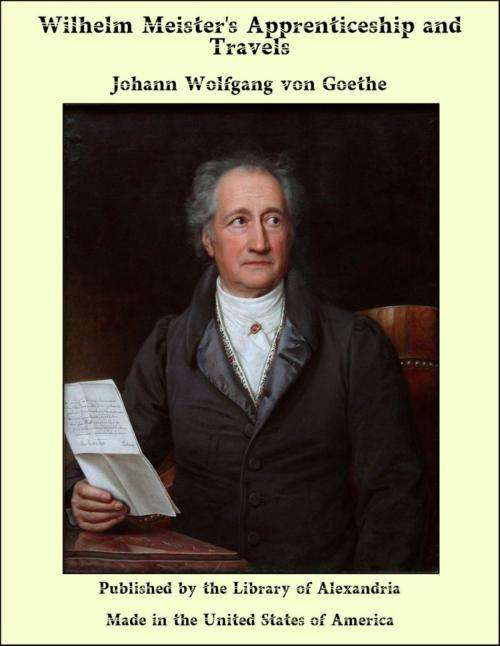Wilhelm Meister's Apprenticeship and Travels
Nonfiction, Religion & Spirituality, New Age, History, Fiction & Literature| Author: | Johann Wolfgang von Goethe | ISBN: | 9781465591371 |
| Publisher: | Library of Alexandria | Publication: | March 8, 2015 |
| Imprint: | Language: | English |
| Author: | Johann Wolfgang von Goethe |
| ISBN: | 9781465591371 |
| Publisher: | Library of Alexandria |
| Publication: | March 8, 2015 |
| Imprint: | |
| Language: | English |
The play was late in breaking up: old Barbara went more than once to the window, and listened for the sound of carriages. She was waiting for Mariana, her pretty mistress, who had that night, in the afterpiece, been acting the part of a young officer, to the no small delight of the public. Barbara's impatience was greater than it used to be, when she had nothing but a frugal supper to present: on this occasion Mariana was to be surprised with a packet, which Norberg, a young and wealthy merchant, had sent by the post, to show that in absence he still thought of his love. As an old servant, as confidant, counsellor, manager, and housekeeper, Barbara assumed the privilege of opening seals; and this evening she had the less been able to restrain her curiosity, as the favor of the open-handed gallant was more a matter of anxiety with herself than with her mistress. On breaking up the packet, she had found, with unfeigned satisfaction, that it held a piece of fine muslin and some ribbons of the newest fashion, for Mariana; with a quantity of calico, two or three neckerchiefs, and a moderate rouleau of money, for herself. Her esteem for the absent Norberg was of course unbounded: she meditated only how she might best present him to the mind of Mariana, best bring to her recollection what she owed him, and what he had a right to expect from her fidelity and thankfulness. The muslin, with the ribbons half unrolled, to set it off by their colors, lay like a Christmas present on the small table; the position of the lights increased the glitter of the gilt; all was in order, when the old woman heard Mariana's step on the stairs, and hastened to meet her. But what was her disappointment, when the little female officer, without deigning to regard her caresses, rushed past her with unusual speed and agitation, threw her hat and sword upon the table, and walked hastily up and down, bestowing not a look on the lights, or any portion of the apparatus.
The play was late in breaking up: old Barbara went more than once to the window, and listened for the sound of carriages. She was waiting for Mariana, her pretty mistress, who had that night, in the afterpiece, been acting the part of a young officer, to the no small delight of the public. Barbara's impatience was greater than it used to be, when she had nothing but a frugal supper to present: on this occasion Mariana was to be surprised with a packet, which Norberg, a young and wealthy merchant, had sent by the post, to show that in absence he still thought of his love. As an old servant, as confidant, counsellor, manager, and housekeeper, Barbara assumed the privilege of opening seals; and this evening she had the less been able to restrain her curiosity, as the favor of the open-handed gallant was more a matter of anxiety with herself than with her mistress. On breaking up the packet, she had found, with unfeigned satisfaction, that it held a piece of fine muslin and some ribbons of the newest fashion, for Mariana; with a quantity of calico, two or three neckerchiefs, and a moderate rouleau of money, for herself. Her esteem for the absent Norberg was of course unbounded: she meditated only how she might best present him to the mind of Mariana, best bring to her recollection what she owed him, and what he had a right to expect from her fidelity and thankfulness. The muslin, with the ribbons half unrolled, to set it off by their colors, lay like a Christmas present on the small table; the position of the lights increased the glitter of the gilt; all was in order, when the old woman heard Mariana's step on the stairs, and hastened to meet her. But what was her disappointment, when the little female officer, without deigning to regard her caresses, rushed past her with unusual speed and agitation, threw her hat and sword upon the table, and walked hastily up and down, bestowing not a look on the lights, or any portion of the apparatus.















